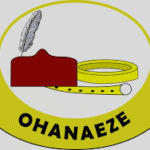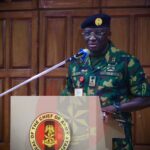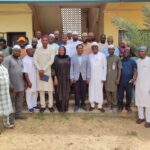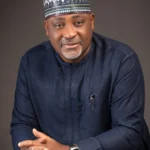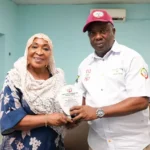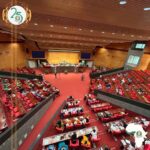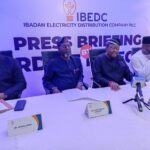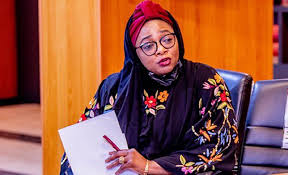By Justina Auta
The Federal Government has urged stakeholders to move from rhetoric to tangible, coordinated action for the empowerment of women and girls.
Minister of Women Affairs, Mrs Imaan Sulaiman-Ibrahim, made the call at a discussions at the Presidential High-Level Advisory Council (P-HLAC) on the Support of Women and Girls in Nigeria in Abuja.
The event attended by Ministers, traditional leaders, CSOs, and other stakeholders aim to strengthen national dialogue and strategic collaboration to advance women’s empowerment across all sectors.
Sulaiman-Ibrahim, described the gathering as a critical moment of reflection and recommitment, while acknowledging significant barriers hindering the advancement of women and girls in Nigeria.
“Women make up over 50 per cent of Nigeria’s population, yet they account for only 33 per cent of the labour force, and less than 10 per cent occupy senior management or board positions.
“Nearly 44 per cent of girls are married before the age of 18, six out of every 10 out-of-school children are girls, and maternal mortality remains among the highest globally,” she said.
According to her, the Ministry’s strategy is anchored under President Bola Tinubu’s Renewed Hope Agenda, such as economic empowerment; social protection; Gender based Violence; social protection, amongst others.
“To fully implement this roadmap, we estimate a financing need of approximately ₦1.6 trillion over five years.
“Bridging this gap requires strong partnerships, domestic resource mobilisation, private capital, and increased collaboration with development partners to ensure no woman or girl is left behind,” she said.
She also highlighted the role of the P-HLAC as a high-level, multi-sectoral platform approved by the Federal Executive Council to drive coordinated policy action.
“This council brings together government, private sector, civil society, traditional and faith institutions, and youth to unlock resources, track solutions, and deliver measurable improvements for women and girls.
“Our success will be measured not by the number of meetings, but by how many state budgets reflect our priorities, how federal decisions align with our guidance, and how effectively we engage the private sector,” she said.
The minister issued three key calls to actions including consolidating political ownership by activating the council’s four thematic subcommittees: Women’s Economic Empowerment, Women’s Health, Women’s Rights and Safety, and Women in Politics and Leadership.
Earlier, Prof Muhammad Ali-Pate, Coordinating Minister of Health and Social Welfare, said the establishment of the P-HLAC is to revitalise the council to align fragmented initiatives under one strategic, high-level framework.
“Empowering women and girls is vital, not just for gender equity but for demographic potential, better health outcomes, and economic growth.
“We must begin with girls, mothers, and children. Every healthy girl today becomes a productive citizen tomorrow,” Pate said.
He outlined the administration’s whole-of-life-course approach under the Renewed Hope Agenda, noting that nearly one in five maternal deaths globally occur in Nigeria due to preventable causes and poor access to reproductive healthcare.
He also highlighted issues such as gender-based violence, child marriage, and unequal access to nutrition, education, and healthcare, citing the Health Sector Strategic Blueprint, launched in December 2023, as a critical step toward saving lives, improving governance, and expanding equitable healthcare.
He emphasised the need for gender-disaggregated data and accountability frameworks to track progress effectively.
“Without accurate data, we are only telling stories, not solving problems.
“We must break silos and collaborate across ministries, civil society, and the private sector under one unified agenda,” he added.
Also, Hadiza Bala Usma, the Special Adviser to the President on Policy and Coordination and Head of the Central Delivery Coordination emphasised the importance of performance tracking to drive improvement, not punishment.
“Coordination is key, and I am pleased to see the Minister providing the necessary leadership.
“You are represented on this council use this opportunity to expand the gender cluster and childcare scope. The revised HLAC structure has great potential, ” she said.
Also speaking, Dr Zainab Ibrahim, Deputy Women’s Leader of the APC and IPAC, stressed the urgent need for increased political inclusion of women.
“Economic, political, and financial inclusion are interconnected.
“Without women at the decision-making table, we cannot move forward, ” she said.
She criticised the low level of female representation in legislative assemblies, noting that in some states, there isn’t a single woman in the House, and even Women’s Committees are chaired by men.
Also, Rinmicit Temlong-Abokei, Gender Lead at the DGA of Albright Stonebridge Group, reinforced the council’s focus areas with supporting data.
She noted that in spite progress, Nigerian women face structural barriers including unpaid care work, limited financial inclusion, poor health outcomes, and critically low leadership representation, just 4.2 per cent of political positions.
She did, however, acknowledge Nigeria’s improvement in global economic inclusion rankings, from 49th to 24th, and urged policymakers to implement measures that sustain this progress.
The Presidential High-Level Advisory Council reinforced Nigeria’s renewed commitment to gender equality and inclusive development.
The event marked a strategic shift from declarations to measurable actions, aiming to ensure that Nigerian women and girls are not only heard but empowered in all spheres of society. (NAN)
Edited by Abdulfatai Beki/Sadiya Hamza

